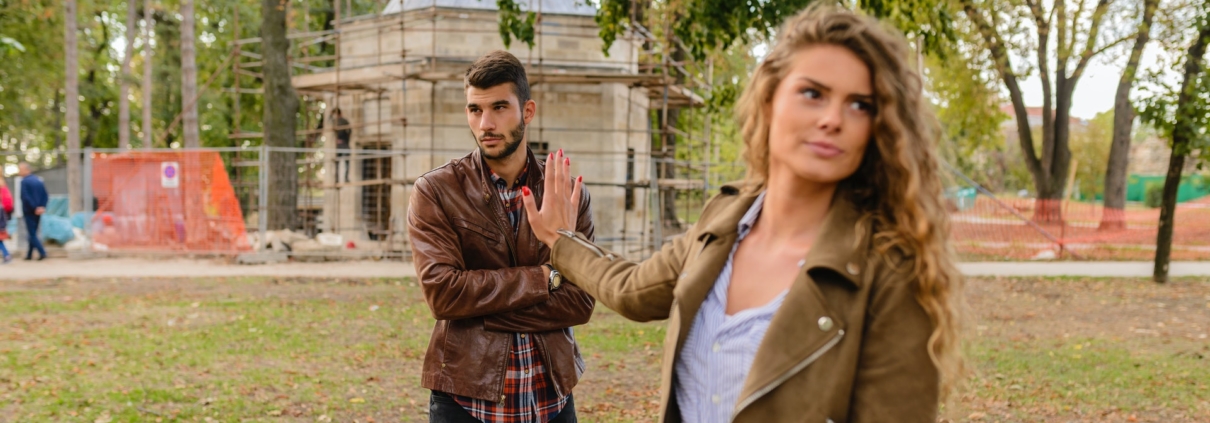How to Fix a Broken Relationship
One of the hardest parts about relationships is when they break down. Whether it’s a platonic friendship, or between siblings, parents and their children, neighbors, or between spouses, the heartache that flows from a relationship breakdown is unique among the many hardships we face in life. Human beings are social creatures, it’s part of our make-up as beings made in the image of a relational God.
 We delight to connect with others, to know and be known and loved by others. In our relationships, we make ourselves vulnerable, build networks of mutual dependence, and build parts of our lives based on those relationships. Newport Beach Christian Counseling supports individuals in fostering meaningful, faith-centered connections that enrich their lives.
We delight to connect with others, to know and be known and loved by others. In our relationships, we make ourselves vulnerable, build networks of mutual dependence, and build parts of our lives based on those relationships. Newport Beach Christian Counseling supports individuals in fostering meaningful, faith-centered connections that enrich their lives.
The sad thing is that the breakdown of relationships is nothing new, and it’s a reality we will continue to face in our lives. Relationships break down for a variety of reasons, and some of those are things we can control and address, while other things need the balm of time and a refreshed perspective from the other person.
What can you do to fix a broken relationship?
What’s going on?
In some cases, when a relationship breaks down, we know precisely what happened. We may have had the power to prevent or slow down the breakdown, or we may have been completely powerless to stop it. In other situations, you may be at a loss as to what happened.
When that happens, it’s important to take the time and effort to figure out what happened. It may require some conversations with the person with whom you were in the relationship if they are willing to engage with you, but it may also require some introspection.
Whether you do this by journaling or talking with a trusted friend to process what happened, or you spend time with a therapist to do that, understanding what happened matters. If the relationship broke down because in your anger you said or did things you shouldn’t have, you need to address that otherwise it can prevent you from restoring your relationship and can affect other relationships as well.
 Part of trying to address a broken relationship is to understand why it broke down in the first place and to do the challenging work that may be needed to change. It may be that in trying to understand what happened, you may uncover a misunderstanding and that gets things back on track.
Part of trying to address a broken relationship is to understand why it broke down in the first place and to do the challenging work that may be needed to change. It may be that in trying to understand what happened, you may uncover a misunderstanding and that gets things back on track.
Sometimes we misspeak, or people mishear us and our intentions, and that can be the cause of the broken relationship. But it’s also possible that the breakdown in the relationship is mostly or entirely our fault and knowing that can empower you by clarifying what needs to happen next.
Apologizing
Sometimes relationships break down because of things we’ve said or done. When we are the cause of pain to someone else, we must apologize, particularly if it was uncalled for. A good friend sometimes causes pain to their companion, but it is well-intentioned.
As the Proverb says, “Friends mean well, even when they hurt you. But when an enemy puts his arm around your shoulder – watch out!” (Proverbs 27:6). Not all truths are pleasant to hear, and we may lose friends because of truth-telling.
It’s important to say here that while the truth may sting and at times people who are unwilling to hear the truth would prefer to cut off those truth-tellers rather than face their issues, one must always be mindful of how the truth is told, and whether it’s our place to do so. Earlier we spoke about doing important soul work to figure out what may have happened to break the relationship. Even if you may have been right in saying what you did, that work is still necessary.
It may be that even if what you said was true, and even if the other person reacted out of anger and fear, you may still need to apologize because of how you said it. You may have overstepped a boundary if you and the person weren’t that close or didn’t have the kind of relationship with room for that.
 In other words, it can get complicated, but being willing to examine ourselves and apologize may be a necessary precursor to reestablishing the relationship. This doesn’t mean backtracking and dismissing what was said but acknowledging the pain that may have been caused or boundaries traversed.
In other words, it can get complicated, but being willing to examine ourselves and apologize may be a necessary precursor to reestablishing the relationship. This doesn’t mean backtracking and dismissing what was said but acknowledging the pain that may have been caused or boundaries traversed.
In a situation where what you said or did was wrong and hurtful, apologizing is an effective way to get the relationship back on track. The apology must be unambiguous, accepting responsibility for what you did without making excuses or justifying yourself, and stating clearly what you will do differently in the future.
Compromising
In addition to apologizing, it may be that the way to fix a broken relationship is to compromise with the other person. Each of us has our own ideas about how things should be, and that can cause friction in a relationship. Neighbors may have vastly different definitions of what constitutes “noise.”
While one thinks playing drums at 5 am is acceptable and drums are great, their neighbor may strongly disagree. Things can escalate, leading to the breakdown of a relationship.
One way to fix a relationship that’s gone down this way is to compromise. Perhaps you can play your drums later in the day when your neighbor is out, or you can arrange a pair of noise-canceling headphones for your neighbor, or you can play your drums somewhere else altogether.
Each of you, by yielding a little ground, might be able to find a way around the impasse. Acknowledging that each of you has legitimate needs, and then going on to find a way to co-exist, can go a long way toward fixing the relationship.
In each situation, you must be clear in your own mind what things you are and are not willing to compromise on and continue to exercise some empathy. Even for the things on which you’re unwilling to compromise, being empathetic may help you hold the line in a way that doesn’t alienate others.
Putting in the work of rebuilding
 When a relationship is broken, both parties may agree that things went wrong, and that the situation needs to be resolved. When things go awry in a relationship, the sense of trust and vulnerability may be broken, and you become a bit more wary of one another. A relationship, even one that the people in it are willing to work at, doesn’t just snap back to what it was before the issue arose.
When a relationship is broken, both parties may agree that things went wrong, and that the situation needs to be resolved. When things go awry in a relationship, the sense of trust and vulnerability may be broken, and you become a bit more wary of one another. A relationship, even one that the people in it are willing to work at, doesn’t just snap back to what it was before the issue arose.
Working through the fresh questions that arise when things go wrong, doing the work of reconfiguring or reimagining your relationship anew, etc. all take time and effort to put into place. If trust was broken, it takes time to restore. A relationship can be what it once was, or even stronger than before, but it takes putting in the demanding work of rebuilding and listening to one another to get there.
Grieving what was
With God, nothing is irreparably broken. Even the dead things can be brought back to life, and that gives us hope that even broken friendships or marriages can be restored. However, it takes two to do the necessary work to restore a relationship, and you can’t compel someone to work on the relationship if they don’t want to.
In other cases, you may both agree to work on your relationship, but that doesn’t guarantee you will restore things. The relationship may never be what it was, but at least you’ve addressed the issues that broke the relationship and emerged on the other side of it.
Christian Counseling for Relationship Issues
Sometimes, the relationship doesn’t get restored at all as you’d hoped. In any of these situations, it’s appropriate to grieve what was. A broken relationship is a loss that we experience, and it’s important to process that loss. It’s not unheard of for a broken relationship to affect other relationships down the line.
Get the help that you need to process the loss of relationships, particularly the ones that matter most to you. Getting counseling and speaking to a trained specialist at Newport Beach Christian Counseling may be just the thing you need to deal with a broken relationship and to gain tools to fix and strengthen your relationships.
“Sitting on the Sidewalk”, Courtesy of Odonata Welnesscenter, Pexels.com, CC0 License; “Talk to the Hand”, Courtesy of Vera Arsic, Pexels.com, CC0 License; “Hold my hand”, Courtesy of Pixabay.com, Pexels.com, CC0 License; “Teamwork”, Courtesy of Fauxels, Pexels.com, CC0 License





